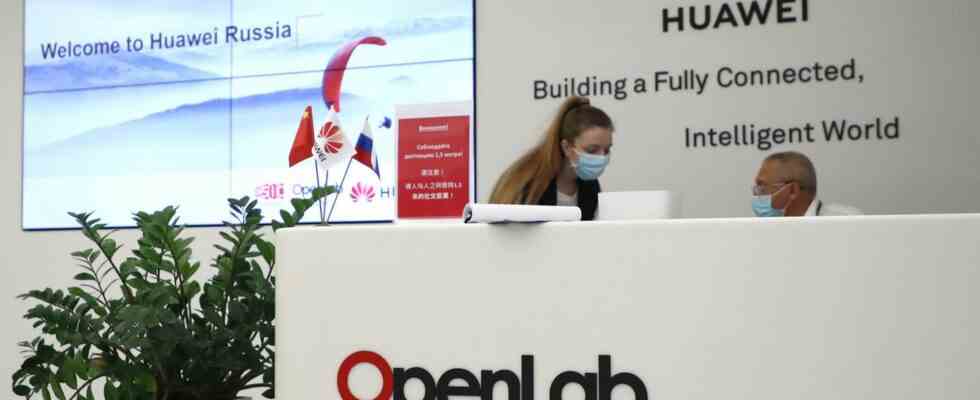telecommunications
Huawei’s Russia dilemma: How the former tech giant is benefiting from the Ukraine conflict – and what the consequences are
Huawei operates several locations in Russia
© Anton Novoderezhkin/ / Picture Alliance
Huawei is one of the big winners from sanctions against Russia. But the Chinese company could risk a definitive break with the West.
After the attack on Ukraine, Russia is groaning under the consequences of the sanctions. One winner of the situation is the tech giant Huawei, which itself has been hit by US sanctions. Russia could be a great opportunity for the Chinese group. But there are far-reaching consequences.
At first, Huawei’s business in Russia over the past few weeks was a rare sense of achievement. Because Apple, Samsung and Co. have withdrawn from the market, Huawei’s smartphone division has enjoyed tremendous success. Sales in Russia rose by a whopping 300 percent in the first weeks of March, which was significantly higher than the three-digit growth rates of Chinese competitors such as Xiaomi or Oppo.
close partnership
An even greater opportunity, however, is the business with which the group once grew: the construction of mobile phone networks. When Russia took Crimea, President Vladimir Putin reportedly had all network hardware from European companies like Nokia and Ericsson removed and replaced with Huawei technology. Now it could be on an even larger scale.
With Huawei and Russia, two partners have found each other who otherwise have few options. For years, the West has become increasingly skeptical about using Huawei technology in networks. The reason was revealed for the first time in December: The Chinese secret service had used the group’s LTE technology for espionage in Australia. In view of the sanctions, Russia hardly has a choice anyway, Nokia and Ericsson have withdrawn from the market in view of the sanctions. Only Huawei and the company ZTE, also from China, remain for a network expansion or as replacement devices.
The relationship with each other has been good for a long time. Russia was the first market into which Huawei expanded from home at the turn of the millennium, and a large part of the national mobile networks has long been running on Huawei technology. The group was also there when Russia wanted to establish a digital payment system. It’s no wonder that Huawei has long had many employees in the country and operates research and data analysis centers there. Even after the war began, the group continued to publish new job ads in Russia, reports the Financial Times.

Uncertain risk
But the promising business in Russia could tear Huawei’s gap with the West even deeper. Because it is not at all clear whether trading is permitted by the sanctions. Observers believe that because many of the devices contain US technology in some form, the companies would actually have to obtain approval from Washington. “I find it almost impossible for them to export to Russia legally,” Kevin Wolf, a former US Commerce Department sanctions expert, told the FT.
The previous restrictions could also lead to new problems. Since Donald Trump’s government imposed sanctions on the group, the purchase of components has been significantly restricted. For more than a year and a half, Huawei has had to draw on hastily built supplies of chips and can only buy new hardware developed using US technologies with special permits. If the situation worsens, that could change quickly, Matthew Borman from the US Department of Commerce made clear last week. If the Chinese companies do not comply with sanctions, the thumbscrews will be tightened even further. “We can’t just ban trade. We can ban every transaction.”


